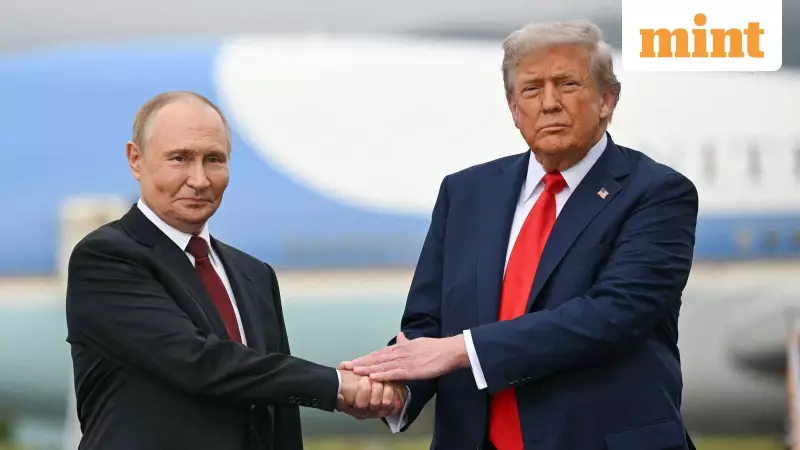
US President Donald Trump has presented a comprehensive 28-point peace proposal to end the Ukraine-Russia conflict, setting a tight deadline for Ukrainian President Volodymyr Zelensky to respond by next Thursday. The plan, which heavily favors Russian interests, demands significant concessions from Ukraine while offering limited returns.
Key Provisions of Trump's Peace Plan
The proposed agreement, crafted by Trump's special envoy Steve Witkoff after consultations with both Ukrainian and Russian officials, requires Ukraine to surrender the entire Donbas region to Russia. This territory includes areas that Vladimir Putin's military has been unable to secure for over a decade. In exchange, Russia would abandon its vow to take over the entire country.
The peace plan contains several crucial provisions affecting Ukraine's sovereignty and security: Ukraine would be permanently barred from joining NATO, and its armed forces would be reduced from the current estimated 900,000 personnel to just 600,000. The agreement also calls for Ukraine to grant amnesty for all parties involved in wartime actions.
Mixed Reactions and Expert Analysis
According to sources familiar with the matter, Ukrainian Secretary of the National Security and Defense Council Rustem Umerov provided "positive feedback" during recent talks with Steve Witkoff in Miami. The official noted that while Umerov agreed to most of the plan, several modifications were made before presenting it to President Zelensky.
However, experts have expressed serious concerns about the proposal's implications. George Barros, leader at Institute for the Study of War Russia program, stated: "The proposal is a bad deal and one that the Trump administration rightfully refused to accept in the past. Deterring future Russian aggression against Ukraine requires a strong Ukrainian military, foreign support to Ukraine — ideally in the form of foreign troops in-country — and a defendable frontline."
Political Implications and Deadlines
During an Oval Office appearance, Trump emphasized the urgency of the situation, stating that Zelensky "doesn't have the cards" to continue fighting and must approve the plan for peace. The US President has sought Zelensky's response by next Thursday, creating significant pressure on the Ukrainian leadership.
A senior US official revealed that the main obstacle in getting Russian officials to accept the agreement was their inability to take over all of Ukraine. The official commented: "I mean, look, everyone knows Vladimir Putin wants to take the whole country. That's his been his long-sought goal. That is something he's made quite clear. The president is very aware of that."
Despite the plan's apparent tilt toward Russian interests, a source close to the negotiations defended the proposal, stating: "This plan obviously stops [Putin] in his tracks, ends the war — and also forces him to relinquish some territory, which you know is a huge loss for him and for Russia."





